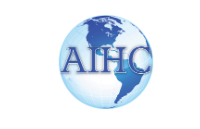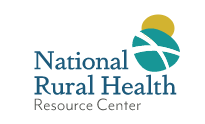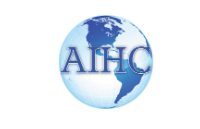September 19, 2023

NOTICE: IQR-Eligible Hospitals to Submit 2Q 2023 Survey Data by October 4, 2023
The submission deadline for the Hospital Consumer Assessment of Healthcare Providers and Systems (HCAHPS) patient perspectives on care survey data for second quarter (2Q) 2023 discharges (April 1-June 30, 2023) is October 4, 2023.
The Centers for Medicare & Medicaid Services (CMS) strongly encourages all hospitals, whether they self-administer the HCAHPS Survey* or use a survey vendor, to submit data well before the deadline to allow time to address any submission issues.
- Inpatient Prospective Payment System (IPPS) hospitals participating in the Inpatient Quality Reporting (IQR) Program must collect and submit HCAHPS data to qualify to receive their full Annual Payment Update. Please see the Q2 2023 Hospital IQR Checklist for further information.
- Non-IPPS hospitals must meet the same submission deadline for their data to be published on public reporting website.
Review and Correction Period
- The Review and Correction Period is October 5-11, 2023.
- Immediately following the October 4, 2023 data-submission deadline, participating hospitals and survey vendors have a seven-day opportunity, October 5-11, 2023, to access and review the HCAHPS Data Review and Correction Report.
- The report contains a summary of the data accepted into the HCAHPS Data Warehouse for the quarter. Errors in data accepted into the warehouse by the October 4, 2023 deadline can be corrected. During this seven-day period, corrected data can be submitted to the warehouse to replace incorrect data. New data are not accepted into the warehouse during the Review and Correction Period.
Extraordinary circumstances exceptions (ece)
In the event that your hospital is unable to submit data or meet requirements due to an extraordinary circumstance, you may request an individual exception.
- For the submission of the HCAHPS data, for the Hospital IQR Program, the ECE must be submitted within 90 calendar days from when you determined that the extraordinary event occurred. The event may occur during the measurement period through the submission or reporting deadline.
- For events adversely impacting your HCAHPS performance, for the Hospital Value-Based Purchasing (HVBP) Program, the ECE must be submitted within 90 days of the date of the extraordinary circumstance. At the latest, ECEs should be submitted no later than 90 days from the last date of the quarter requested.
- For example, the last day of Q2 2023 is June 30, 2023. The ECE should be submitted no later than 90 days after the end of Q2, which will be September 28, 2023.
Please refer to the HVBP and IQR resources on QualityNet for further information.
Hospital Contact Information: To ensure your hospital receives critical communications about meeting the requirements of the IQR Program (and other CMS quality reporting programs), including submission-deadline reminders and program updates, it is important that we have the complete contact information for the key roles at your hospital. Updates to your contact information can be submitted, if needed, using the Hospital Contact Form. This document is available on the Quality Reporting Center website (www.qualityreportingcenter.com > Inpatient > Hospital IQR Program > Resources and Tools > Forms).
HCAHPS Contact Information
- For general questions regarding the HCAHPS Survey, contact CMS at Hospitalcahps@cms.hhs.gov.
- For questions regarding HCAHPS Survey administration, contact the HCAHPS Project Team at (888) 884-4007 or at hcahps@hsag.com.
- For questions regarding HCAHPS data submission information, contact the CCSQ Service Center at (866) 288-8912 or at qnetsupport@cms.hhs.gov.
- For questions regarding information on the HCAHPS initiative, file specifications, and data-submission protocols, use the contact information on the HCAHPS website at hcahpsonline.org.
- For questions regarding the IQR Program, use the Inpatient Questions & Answers tool at https://cmsqualitysupport.servicenowservices.com/qnet_qa?id=ask_a_question or call the Inpatient Value, Incentives, and Quality Reporting Outreach and Education Support Team at (844) 472-4477.
*The HCAHPS Survey is also known as the CAHPS® Hospital Survey. CAHPS® is a registered trademark of the Agency for Healthcare Research and Quality, a U.S. Government agency.








